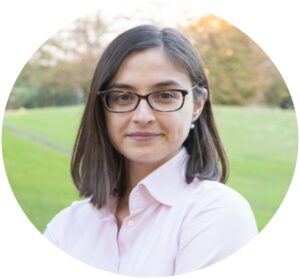Joana Barbosa
Universidade Católica Portuguesa – Porto, Portugal
Joana completed her PhD in Biology, Specialization Molecular Biology and Genetics in 2020/01/28, at Universidade de Aveiro (Aveiro, Portugal). Her PhD work was performed at Universidade de Aveiro (Portugal) and Technical University of Berlin (Germany) and in collaboration with the Institute of Molecular Medicine (Lisboa, Portugal). She finished her MSc in Molecular Biotechnology in 2012/12 and her BSc in Biotechnology in 2010/07, both at Universidade de Aveiro. During her MSc, she was awarded with an Erasmus grant and spent a semester at Università degli Studi di Pavia (Italy).
For more detailed and up-to-date information, please refer to: https://www.cienciavitae.pt/portal/en/2612-C1A9-64B2

Katarzyna Duda
Research Center Borstel, Germany
She is a Principal Investigator at the German Center for Lung Research (DZL) where she is dedicated to asthma and allergy research.
Teaching future and young scientists as well as activities aimed at sharing knowledge with the public are important to her. She is a lecturer at the Borstel Biomedical Research School, the University of Lübeck and the Christian Albrecht University in Kiel. Katarzyna has contributed to the organization of various public activities at the Research Center Borstel, such as “World-Asthma-Tag” (2016, 2017), “Borstel Kinder-Uni” (2018) and “Open House Day at RCB” (2018).

Małgorzata Przybyła-Kasperek
University of Silesia in Katowice, Poland

Monika Malicka
University of Silesia in Katowice, Poland







